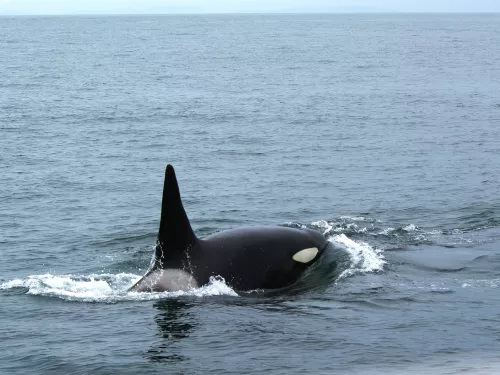
Orca
Orca, sometimes known as ‘killer whales’, are unmistakable with their black and white markings. Although we do have a small group of orca who live in British waters, you would be lucky to see them!

There's another world waiting beneath the waves. Seals weave in and out of sunlit kelp forests, cuttlefish flash all the colours of the rainbow, starfish graze along the muddy seabed and sharks slip through the open water.
The sea can seem like just a huge expanse of water – vast, deep and maybe a little scary. But a huge variety of habitats can be found here. Close to shore, rocky reefs create rockpools that teem with anemones and starfish, while further out to sea, deep-water corals provide nursery sites for many of our commercial fishes such as cod.
Kelp forests support numerous species from tiny plankton to large fish, and living reefs (made entirely of organisms like mussels or tubeworms) provide food and shelter for marine wildlife. In the shallows, seahorses and bass hide among underwater meadows of seagrass.
Deep-sea mud plains may look barren and lifeless, but they are home to all kinds of sea life like bristleworms, spider crabs and lobsters. Shallow mudflats are a feeding ground for waterbirds at low tide, and sand and gravel beds are important for crustaceans like shrimps, and for spawning fish, which burrow into the seabed for protection.
As a result of its richness, our marine environment is under threat. Overexploitation of fish stocks is causing the decline of many once-familiar species. Pollution from sewage discharge, oil spills and nutrient run-off is extremely toxic to sea life, while physical disturbance from dredging, mobile fishing gear, boat anchoring and coastal development are also taking their toll on marine habitats.
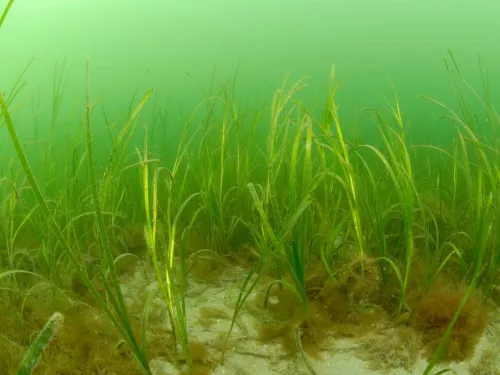
Meadows of seagrass spread across the seabed, their dense green leaves sheltering a wealth of wildlife including our two native species of seahorse.
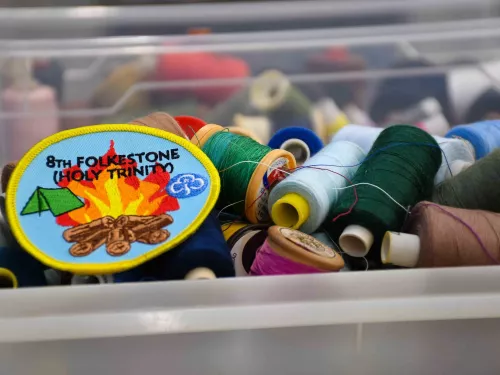
Those of you who have been following the development of the Blue Influencers Scheme being delivered by Kent Wildlife Trust may recall that KWT successfully bid for funding from The Ernest Cook Trust and the #iwill Fund and were awarded £20,000 a year for…
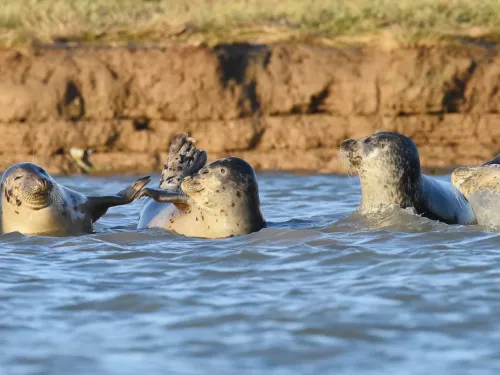
Nina Jones, Protected Area Warden takes a moment ahead of National Marine Week to explain what we can individually and collectively do to help restore and protect nature on our coasts.
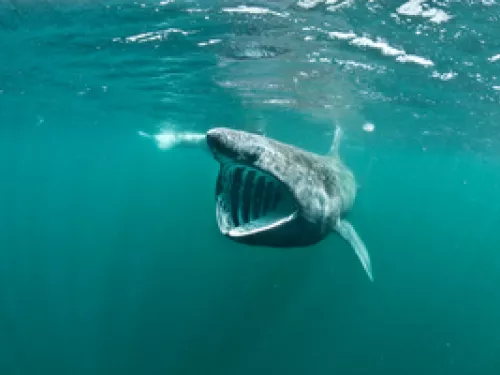
You hear “shark”, you think Jaws. Sadly, this is true for many of us… but then who hasn’t been slightly traumatised by Steven Spielberg’s enduring epic?